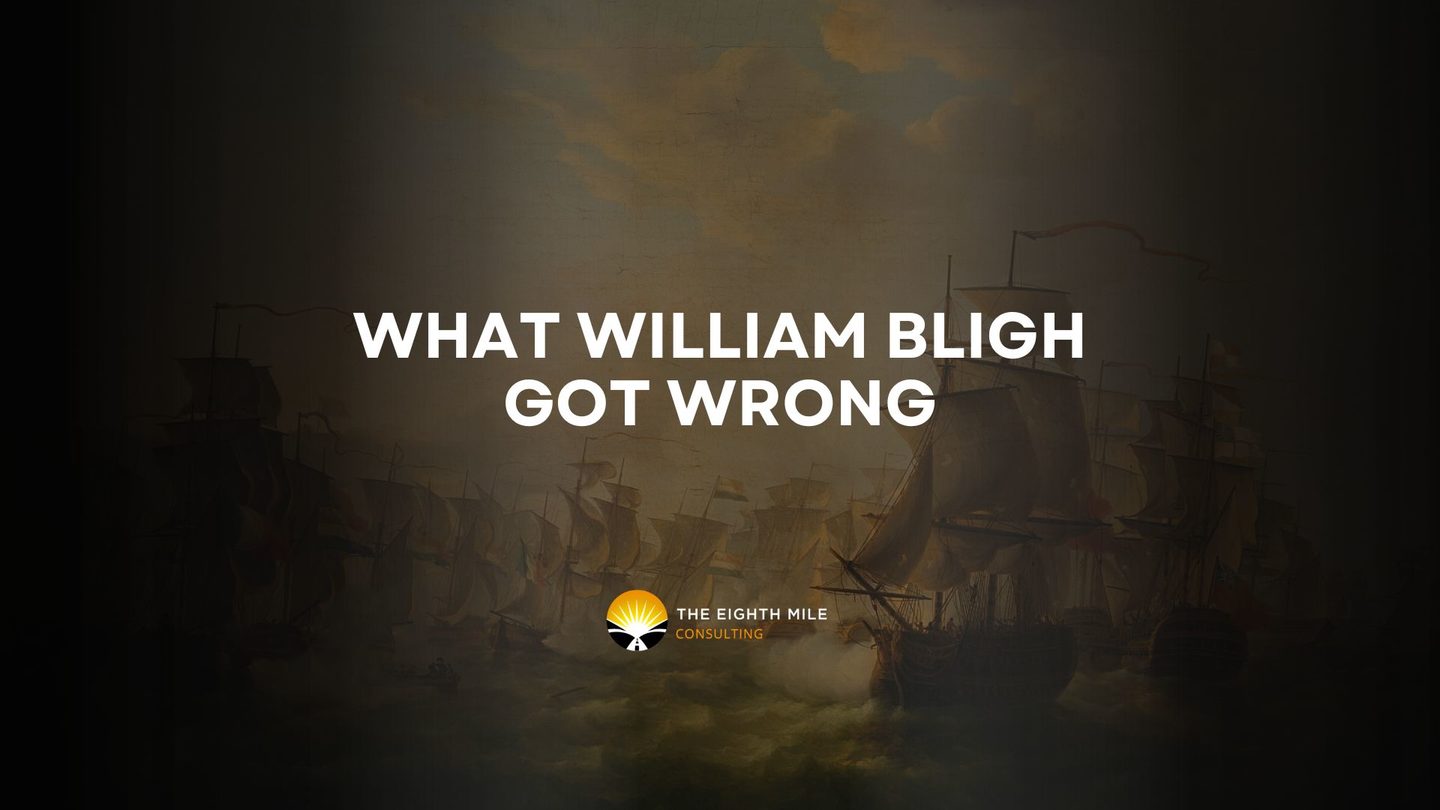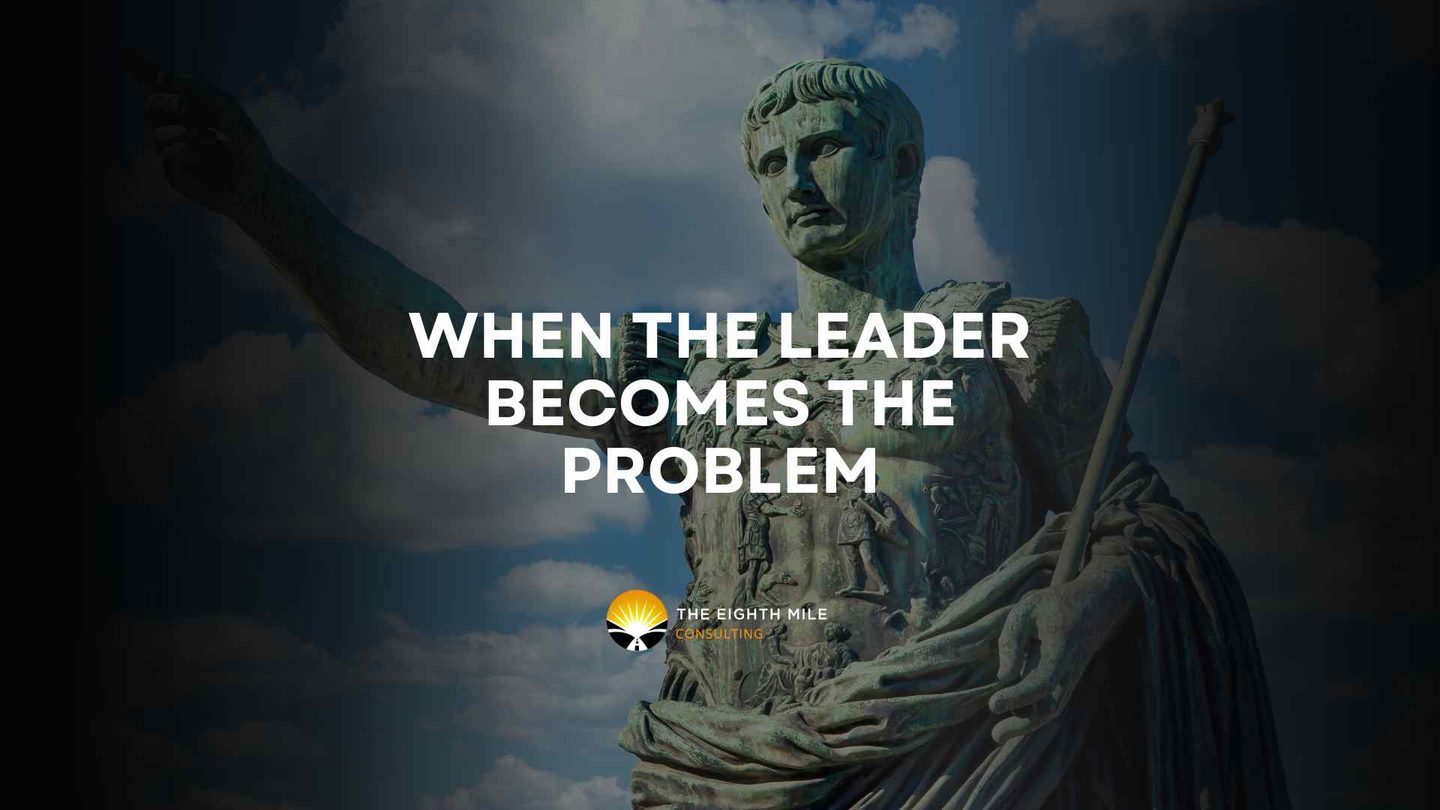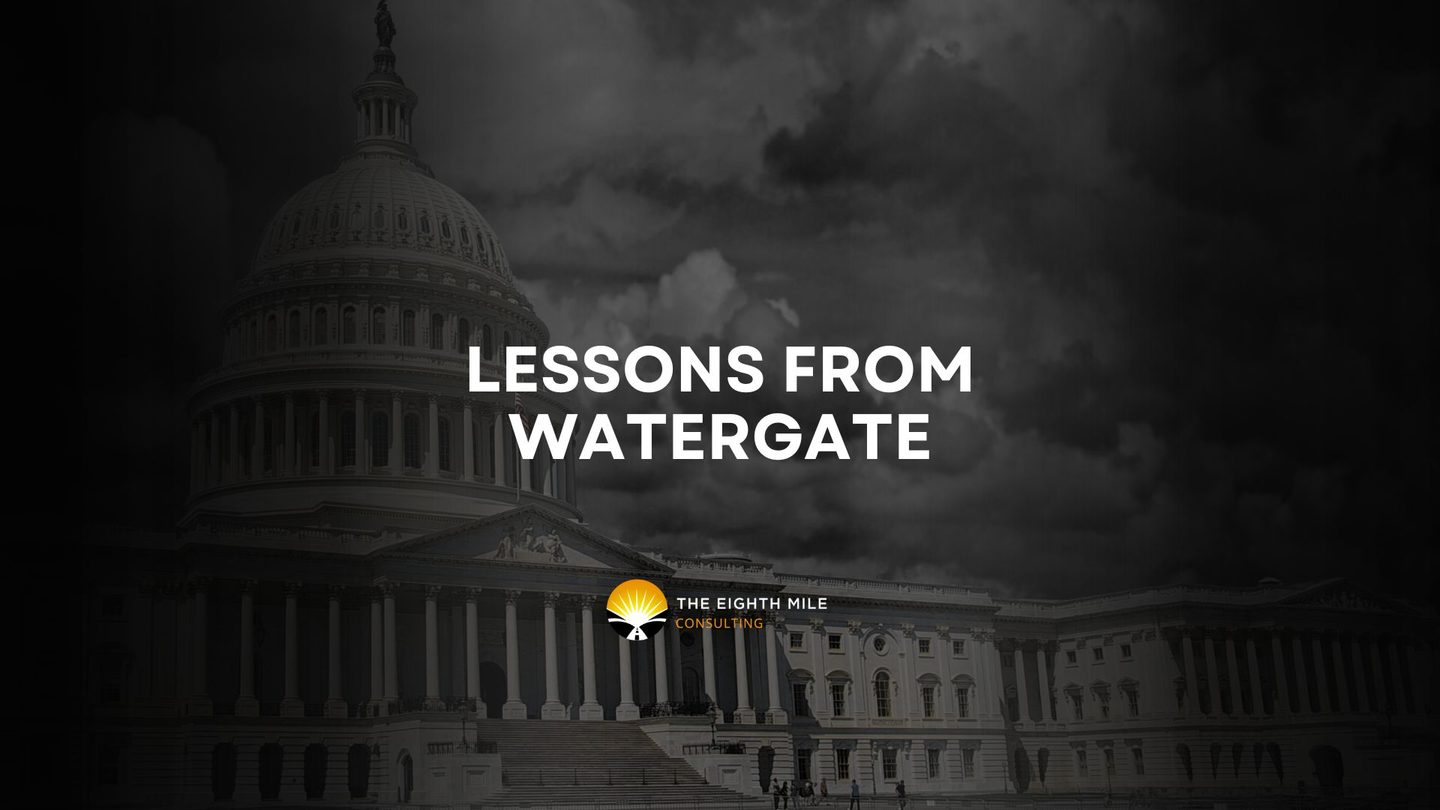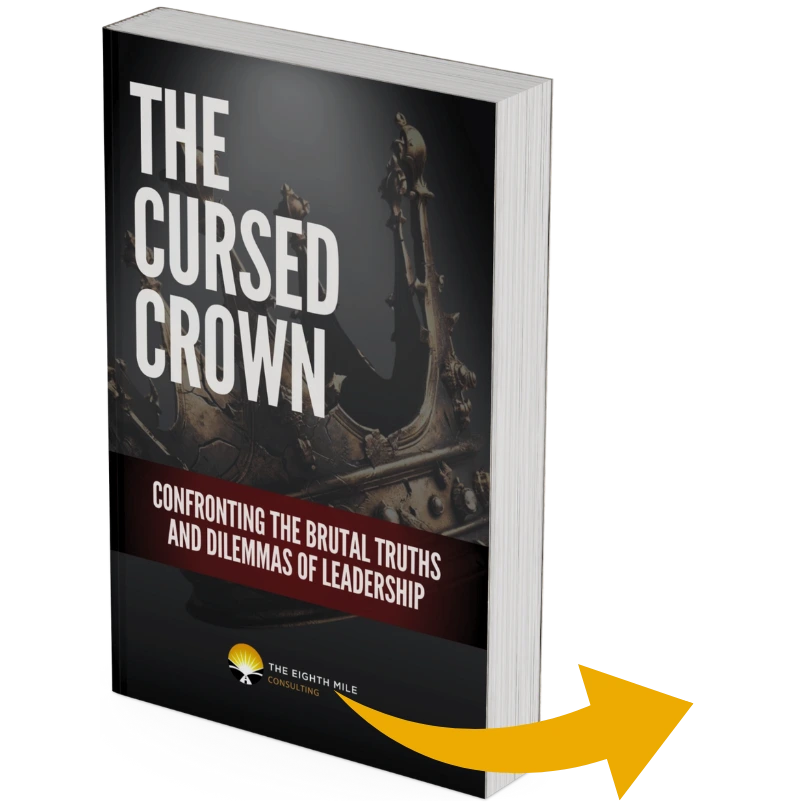
FREE DOWNLOAD
Hard-learned leadership lessons from both the military and the corporate world
Emotional Intelligence in Leadership
There’s a reason technically brilliant leaders still end up with disengaged teams and burnt-out staff. Intelligence is useful but it’s incomplete.
Cognitive intelligence (Intellectual Quotient - IQ) can solve complex problems, optimise systems, and absorb information rapidly. But leadership isn’t just about solving. That’s where emotional intelligence (EQ) steps in.
While IQ peaks in early adulthood and remains relatively stable, emotional intelligence is adaptive. According to Daniel Goleman, who popularised the concept, EQ accounts for nearly 90% of the difference between average and exceptional leaders in senior roles.
Neuroscientific research further supports this. Functional MRI studies show that emotionally intelligent individuals demonstrate greater activity in the prefrontal cortex—responsible for regulation and rational thought—when experiencing stress. They’re more likely to pause, assess, and respond thoughtfully. Leaders with low EQ tend to activate the amygdala, the brain’s fear centre, resulting in reactive or emotionally volatile decisions.
The problem isn’t that high-IQ leaders aren’t smart enough. It’s that they’re flying with only one engine. And it’s the missing engine, EQ, that prevents relationships from crashing under pressure.
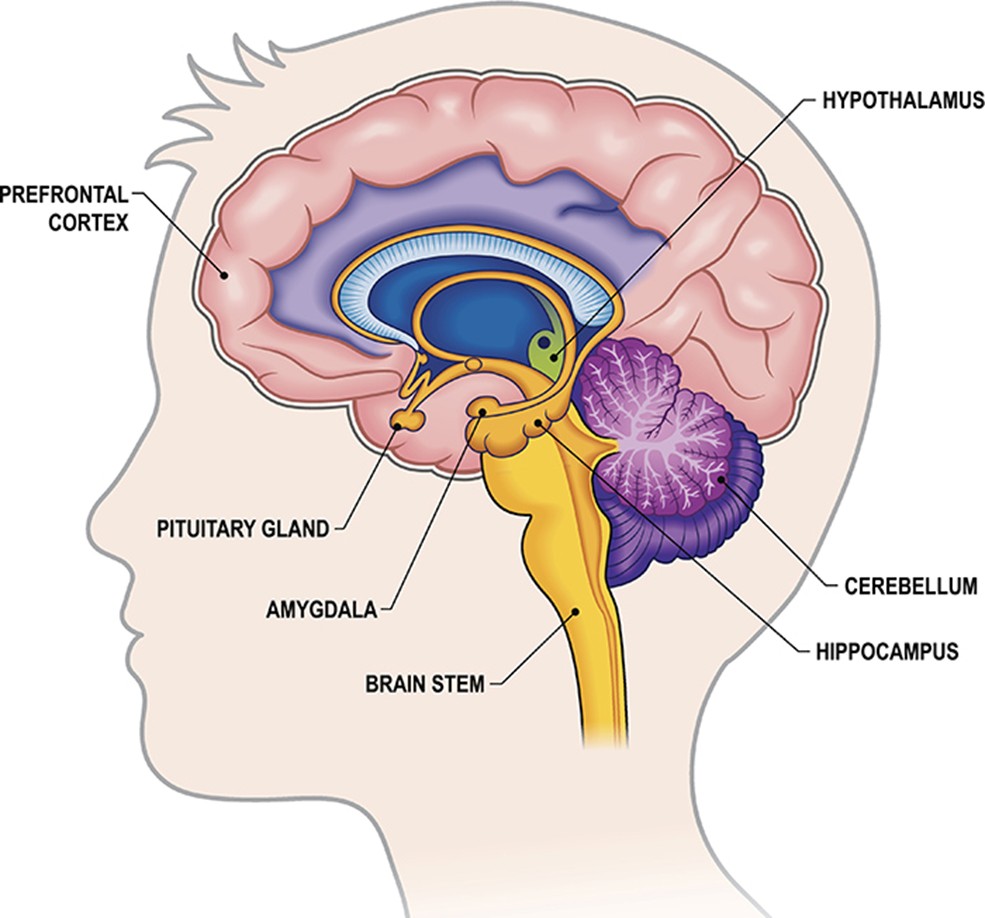
The Limic System - Queensland Brain Institute
Self-awareness: If You Can’t Name It, You Can’t Tame It
The first step to emotional intelligence is knowing yourself - your patterns, your biases, your blind spots. Leaders with well-developed self-awareness can detect these patterns and stop before making poor decisions. Without this ability, we confuse emotion with instinct. We justify micromanagement as “just being thorough.” We call control “standards.” The result is confusion, both for us and our team.
That said, not all micromanagement is toxic. In high-stakes environments, when the margin for error is razor-thin or when someone is learning something for the first time, closer oversight isn’t controlling, it’s protective. Emotional intelligence helps us distinguish between necessary involvement and compulsive interference. It’s not about never stepping in, it’s knowing why we’re stepping in, and whether it's helping or hindering. The goal is always to create an independent team that can operate without constant oversight.
Empathy: Seeing Beyond Your Own Perspective
Empathy activates the mirror neuron system, which allows us to understand and respond to the emotions of others. It’s the neurological foundation for compassion, curiosity, and connection. For leaders, empathy doesn’t mean letting everyone off the hook. It means understanding why someone’s struggling and then helping them get back on track. Empathy invites accountability by making people feel safe enough to admit they’re off course.
These skills are built through feedback loops, repetition, and trust-building over time. From a neuroscience standpoint, these interactions strengthen neural pathways involved in executive function and relational memory, helping us adjust our behaviours across different contexts.
What Emotional Intelligence Looks Like in Practice
Defusing Tension Without Losing Authority
Emotionally intelligent leaders don’t bulldoze tension. They acknowledge it. They allow space for others to speak without immediately correcting them. This creates psychological safety, a key driver of high-performance teams.
Reading the Room When No One’s Saying a Word
Not everything worth noticing is verbal. Body language, eye contact, tone, all provides information. Emotionally intelligent leaders scan for dissonance: the quiet team meeting after a contentious decision, the stiff posture during a difficult conversation, the person who suddenly goes silent. This isn’t about paranoia. It’s about situational awareness. It’s what helps leaders make decisions that take into account not just what’s been said but what’s being felt.
Giving Feedback That Actually Lands
Constructive feedback without emotional intelligence lands like a hammer. With EQ, it lands like a compass. Leaders who approach feedback with empathy and clarity reduce the brain’s defensive response—particularly the amygdala hijack that causes people to shut down.
Leading Through Crisis Without Becoming the Crisis
The prefrontal cortex vs. the amygdala becomes most apparent in crisis. When the pressure’s on, emotionally intelligent leaders hold steady. They don’t catastrophise. They don’t spread panic. They model calm without denying reality. They understand that leadership during crisis is as much about emotional containment as operational competence.
The Cost of Getting It Wrong
Attrition, Absenteeism, Apathy
Low EQ leadership bleeds organisations. People disengage in three primary ways, and each carries a cost.
- Attrition is the most visible. Talented people leave. Not always loudly. Sometimes they exit without fanfare, taking their skills, institutional knowledge, and trust in leadership with them. The recruiting cycle to fill these positions costs time, energy, and morale.
- Absenteeism is subtler. It’s the recurring sick days, the long weekends, the “I’ll catch up tomorrow” syndrome. When emotional strain outweighs psychological safety, people start protecting themselves in the only way they can: by not showing up.
- Apathy is the most dangerous of the three. People stop caring. They show up in body, but not in spirit. Innovation drops. Accountability weakens. Feedback dries up. Teams go from high-performance to box-ticking machines. No performance management framework can revive what emotional disengagement has already killed.
Culture Turns Toxic
Toxic culture rarely begins with a dramatic event. It creeps in, through repeated inaction and misalignment.
It begins when leaders dismiss tension as “drama,” label honest feedback as “negativity,” and reward compliance over contribution. Leaders who lack emotional intelligence don’t just ignore the undercurrents, they create them. They deflect blame, avoid conflict, and favour those who tell them what they want to hear.
Over time, teams stop trusting each other. People begin operating in self-preservation mode. Silence becomes the norm. What used to be a collaborative workplace devolves into a political minefield.
Psychological safety, the bedrock of high-performing teams, is the first casualty. And once that’s gone, what remains is a fragile culture. One that performs under pressure, but fractures under strain.
Poor Emotional Judgement = Poor Decisions
Leadership without emotional intelligence is strategically flawed.
When we misread emotional cues, we misinterpret what’s really going on. Anxiety looks like disloyalty. Resistance gets labelled as laziness. Agreement is mistaken for buy-in. The data may say one thing, but the emotional context—what people feel, fear, or avoid—is ignored entirely.
This is where the poor decisions begin. Plans are built on shaky ground. Promotions are given to the wrong people. Conflicts are left to fester or are handled with a sledgehammer instead of a scalpel.
When emotions are misjudged, the prefrontal cortex (which governs rational thinking) gets sidelined by the amygdala, which triggers fight, flight, or freeze. Low-EQ leaders make decisions in a reactive state, not a reflective one. And it shows.
The Ripple Effect
The impact of a low EQ leader doesn’t stop at their direct reports. It radiates across an organisation.
Collaboration falters. Teams start withholding information. Communication becomes about avoiding blame instead of solving problems. Other leaders begin to mirror the dysfunction, either out of frustration or survival. Suddenly, what started as one emotionally unaware manager becomes a culture-wide issue.
We've seen high-performing departments start to underdeliver not because they lacked skill, but because they were operating under emotional crossfire. Decision-making slows. Innovation is stifled. Trust, once lost, is hard to rebuild.
It shows up in everything from staff turnover to missed opportunities to reputational damage. What looks like a people problem is actually a performance ceiling set by leadership behaviour that’s gone unchecked for too long.
Can EQ Be Learned?
The First Step Is Letting Go of Ego
Emotional intelligence can’t be developed without confronting uncomfortable truths. We must be willing to ask:
- “Where do I lose people?”
- “What am I not seeing?”
- “How do people feel around me when I’m under pressure?”
This process activates the default mode network, responsible for self-reflection and moral reasoning. It’s where genuine growth begins and ego defences break down.
Practical Tools That Work
- Journaling to identify emotional patterns
- Breathwork to re-engage the rational brain under stress
- 360 feedback to surface blind spots
- Coaching to create accountability and challenge unhelpful narratives
- Peer dialogues to normalise vulnerability and improve listening
What Real Self-Reflection Looks Like
Self-reflection is about recalibration. It asks:
- “What emotion did I bring into that room?”
- “Did my tone match my intent?”
- “What signals did I miss?”
This kind of inquiry fosters meta-cognition - thinking about how we think - which is the foundation of leadership maturity.
Like Any Skill, It Requires Reps
EQ grows through repetition. Through hard conversations. Through failed attempts. Through hearing feedback and staying open. Neural pathways shift with use. The more leaders practise emotionally intelligent behaviours, the more automatic they become.
Where We’re Headed: The Future of Leadership Is Emotional
EQ Is No Longer Optional
Recruitment is shifting. It’s no longer enough to have technical experience and industry knowledge. Hiring managers are now assessing for resilience, self-awareness, and influence. Those without it are being passed over for those with it.
Performance Reviews Are Evolving
Companies are beginning to formally track how leaders build trust, handle conflict, and foster culture. Emotional intelligence isn’t the opposite of high performance, it’s how high performance is sustained.
Strong Leadership Is Being Redefined
We’re moving away from outdated models of dominance and detachment. Today’s strongest leaders are the ones who can have hard conversations without destroying rapport. The ones who can own a mistake without collapsing. The ones who lead people, not just processes.
Emotional Intelligence Is a Competitive Edge
In a world of automation, EQ is the human advantage. It’s what builds high-trust teams, accelerates execution, and keeps talent loyal. It’s not fluff, it’s frictionless leadership.
Newsletter Signup
Topics
Share this post
You might also like
(07) 2114 9072
Drawn from lessons learned in the military, and in business, we make leadership principles tangible and relatable through real-world examples, personal anecdotes, and case studies.
© Copyright 2023 The Eighth Mile Consulting | Privacy




